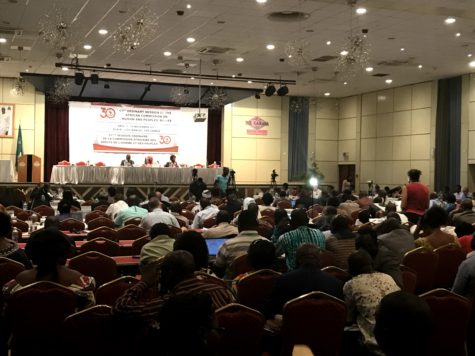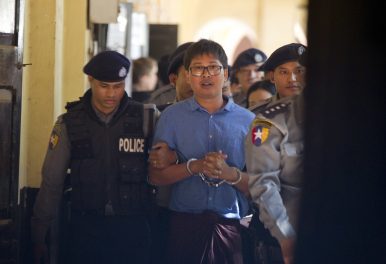By: Genna Amick
Journal of Global Rights and Organizations, Associate Articles Editor
MADRID, Spain — On October 17, 2019, the Grand Chamber of the European Court of Human Rights found that the right to privacy of supermarket employees was not violated by the supermarket using visible and hidden cameras to record areas of the store where it suspected theft by employees.
The manager of a Spanish supermarket noticed that stock valued at upwards of €20,000 was missing. He decided to install cameras without informing any of his employees. The cameras focused on exits, entrances, and checkout counters. Based on the surveillance footage, the manager discovered that a number of his employees were taking goods without paying for them and helping customers to steal. He fired 14 of his employees, five of which are the applicants in this case.
The applicants argued that they were dismissed unfairly and that their right to privacy was violated by the installation of the cameras without their knowledge. The Spanish Employment Tribunal found that the dismissal was valid and that the applicant’s right to privacy had not been violated. After the Spanish High Court affirmed the Employment Tribunal’s ruling, the applicants submitted a complaint to the European Court of Human Rights.
In January 2018, a chamber of the European Court of Human Rights found that the employee’s right to privacy under Article 8 of the European Convention had been violated because they had not been informed of the installation of the cameras. However, the chamber did not find that the applicant’s right to a fair trial under Article 6 of the European Convention had been violated.
The case was then accepted and reviewed by the Grand Chamber which found that applicant’s Article 8 right to privacy was not violated nor was their Article 6 right to a fair trial. Delving into the right to privacy, the Grand Chamber held that employers are not required to notify employees of surveillance equipment if it was installed to protect a “significant” interest.
Applicant’s also argued that the State had a positive obligation to protect their rights against the actions of a private company. The Grand Chamber found that since there were a number of domestic laws in place intended to safeguard the applicant’s right to privacy which they could have sought legal remedies under, the State had acted within its margin of appreciation. The Grand Chamber concluded that the applicant’s Article 8 right to privacy had not been violated.
The Grand Chamber also concluded that applicant’s Article 6 right to a fair trial was not violated. In this case, the applicants attempted to argue that using their former employer’s video recordings of them stealing was inadmissible. The Grand Chamber held that using the videos as evidence did not undermine the fairness of the proceeding for two reasons. First, applicants had the ability to challenge the quality and accuracy of the videos. Second, the recordings were not the only evidence that was used by the Spanish domestic courts.
For further information, please see:
Warner Goodman – Employment Law Case Update: Lopez Ribalda and others v Spain – 24 May 2018


